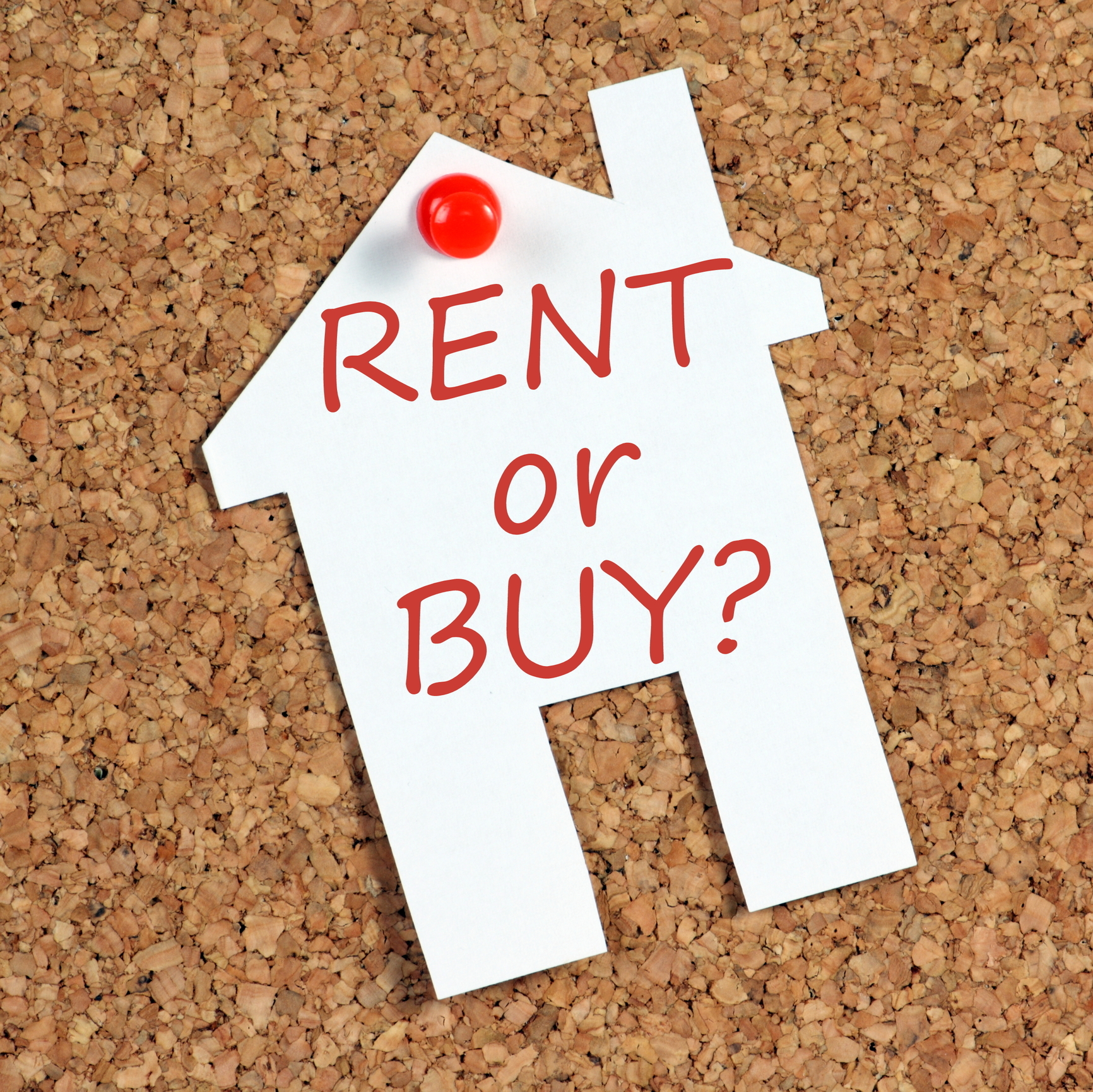
The debate about whether it makes more financial sense to rent or buy has been raging for decades. Advocates of buying say: When you rent, you’re essentially paying someone else’s mortgage. Buying, on the other hand, is an investment—one that can significantly increase in value every year you continue living in the home.
Fans of renting say: The extra costs associated with owning a home (interest payments on the loan, property taxes, homeowner dues, improvement/repair costs, etc.) add up. And there’s no guarantee that those expenses will be recouped when the house is sold. Instead of investing in a home, you may be better off investing your savings in stocks, bonds, and other financial securities.
Who’s right?
According to Jed Kolko, one of the country’s most respected real estate economists, “Mortgage rates are still near long-term lows. Because prices fell so much after the housing bubble burst, and remain low relative to rents even after recent price increases, buying is still much cheaper than renting.“
But that’s a blanket statement. The right option for you depends on your personal circumstances, and your answers to the following questions:
What’s the real estate situation in your city?
Industry groups put out reports every quarter stating the average national sales price for a home, and the average monthly payment for a U.S. rental. But what really matters is what the numbers show when you dig into them on a local level.
The reports are almost always based on average for all the cities in the country. Delve into the details, and you’ll see there are some cities that fall well below that average, and some that rise far above it. The learning: When comparing housing costs, be sure to base your evaluation on what’s happening in your city and neighborhood, not the nationwide averages.
How long do you expect to live there?
If five years is the longest you can envision yourself living in one place right now, renting is probably your best bet financially. But if you think you’re ready to put down roots for as long as 10 years, chances are very good that any home you purchase will appreciate during that time even if the economy runs into some bumps along the way.
What’s the mortgage rate?
One of the other key factors to consider is the cost of your loan (the interest you’ll pay the lender). Fortunately, you now have access to some of the lowest mortgage interest rates in history, even if they increase a bit over the coming year, as many expect. According to a recent article in Forbes, “Compared to decades past, today’s rates are unprecedentedly—and artificially—low. They’re the direct result of a Federal Reserve-funded fiscal stimulus plan, better known as the third round of quantitative easing of QE3, aimed at hastening the recovery in housing and the economy as a whole.”
Can you pay a bit more?
If you can afford to pay a little extra towards your mortgage bill each month, it makes even more sense to buy. Paying $300 more per month (on a 30-year, $300,000 loan) will knock eight years off the life of the loan and reduce your final bill by more than $63,000 (that’s savings you would never see if you rented).
Will you need to make repairs or improvements?
Buying a fixer-upper may seem like a great way to get a deal on a house, but if the money you spend on the repairs is too great, your profit could be slashed when it comes time to sell. The same is true for remodeling and improvement projects. If you can only afford a home that demands major improvements, and you don’t have the skills to do much of the work yourself, it’s probably better to rent.
Do you have other ways to invest?
Many see a home purchase as an easy way to invest—a place where they can generate savings through home equity. But others say you can make more money renting an apartment and investing your savings in stocks, bonds, and other financial securities.
According to two professors studying the issue, it is possible to make more money investing in securities, however, you need to invest ALL the money you would have put towards the house (something most people can’t/won’t/don’t do). Plus, do you have the knowledge, resources and liquid cash necessary?
“We find that if people don’t invest the money, actually about 90% of the time, you’re better off buying,” says professor Eli Beracha, a co-author of the study.
Can you rent part of the house?
Here’s a twist: If you buy a house that includes a rental (space bedroom, mother-in-law unit, etc.), you could BE the landlord instead of paying the landlord. With that rental income, you could pay off the mortgage faster and contribute more to your savings. But, of course, you need to be willing to share your home with a tenant and take on the responsibilities of being a landlord.
Making your decision
To make your decision about whether to rent or buy easier, input the key financial facts regarding your situation into this Realtor.com Rent vs. Buy Calculator: https://www.realtor.com/mortgage/tools/rent-or-buy-calculator/. For help making sense of the results and analyzing other factors, contact an experienced Windermere Real Estate agent by clicking here.
First posted in Buying and Selling by Marilou Ubungen
Posted in Windermere Blog
 Facebook
Facebook
 X
X
 Pinterest
Pinterest
 Copy Link
Copy Link
